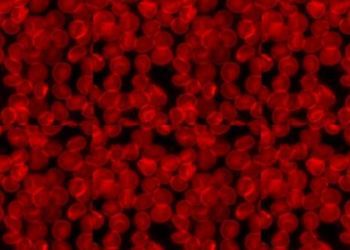O and Rh– blood groups may be associated with decreased risk for SARS-CoV-2 infection
1. Patients with type O blood were found to be at lower risk for SARS-CoV-2 infection, severe COVID-19, and death compared to the composite of all other blood groups.
2. This small protective effect was slightly enhanced by rhesus-negative status.
Evidence Rating Level: 2 (Good)
Study Rundown: It has been suggested that patients with type O blood and rhesus-negative status may have lower risk for both SARS-CoV-2 infection and severe COVID-19, but the studies supporting this hypothesis generally had small sample sizes, lacked stringent control populations, or failed to account for influential confounders. This population-level study that drew data from a universal health care system found that blood groups B and AB had a higher risk of SARS-CoV-2 infection compared to blood group A. Examined as a whole, the non-O group had a significantly higher risk of infection compared to the O group; similarly, the rhesus-positive group had a significantly higher risk of infection compared to the rhesus-negative group. Type O– blood was associated with a lower risk of infection compared to any other ABO-Rh combination but was not protective against severe COVID-19 or death. Individually, both type O blood and rhesus-negative status were associated with lower frequencies of these two outcomes. While these results constitute the strongest evidence for a relationship between blood type and SARS-CoV-2 vulnerability to date, this study was still limited by potential selection bias due to an absence of universal screening. Further research should be done to confirm these findings in various subpopulations and elucidate the mechanisms underlying this phenomenon.
Click here to read the study, published in Annals of Internal Medicine
Relevant Reading: Genomewide Association Study of Severe Covid-19 with Respiratory Failure
In-Depth[retrospective cohort]: This study involved 225,556 individuals across Ontario, Canada who had their ABO blood group assessed from January 2007 to December 2019 and had PCR testing for SARS-CoV-2 between 15 January and 30 June 2020. Of these patients, 36.3% had blood type A, 4.5% had type AB, 14.9% had type B, and 44.3% had type O; 13.1% were rhesus-negative. Comorbidities were highly prevalent, with some of the most common being hypertension (~40%), dementia/frailty (~35%), diabetes mellitus (21%), asthma (~20%), COPD (~15%), and cardiac disease (~14%). Compared to blood group A, the risk for infection was higher in both group AB (adjusted risk ratio [aRR], 1.15; 95% CI, 1.03 to 1.28) and group B (aRR, 1.21; 95% CI, 1.13 to 1.29). No difference in this measure was observed between group O and group A alone, but group O did have a significantly lower risk of infection when compared to the composite of all other blood groups (aRR, 0.88; 95% CI, 0.84 to 0.92). Rhesus-negative status was also associated with a lower risk of infection compared to rhesus-positive status (aRR, 0.79; 95% CI, 0.73 to 0.85). These protective effects appeared to be synergistic, with O– and the composite of all other blood types having the greatest between group difference of any comparison (aRR, 0.74; 95% CI, 0.66 to 0.83). The composite outcome of severe COVID-19 and death occurred in 1328 persons; again, a protective effect was observed for both type O (aRR, 0.87; 95% CI, 0.78 to 0.97) and Rh– blood (aRR, 0.82; 95% CI, 0.68 to 0.96). Interestingly, no significant difference in the risk of this composite outcome was observed between type O– and other blood groups (aRR, 0.84 [CI, 0.64 to 1.07]).
©2021 2 Minute Medicine, Inc. All rights reserved. No works may be reproduced without expressed written consent from 2 Minute Medicine, Inc. Inquire about licensing here. No article should be construed as medical advice and is not intended as such by the authors or by 2 Minute Medicine, Inc.






